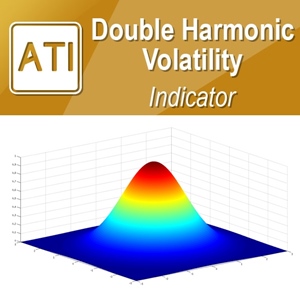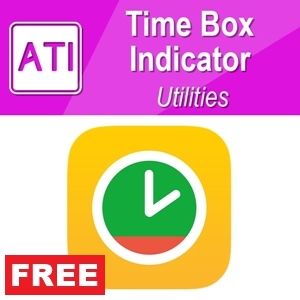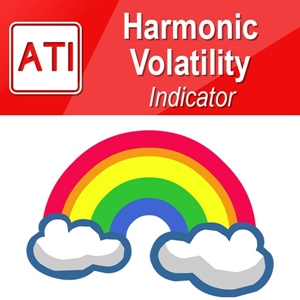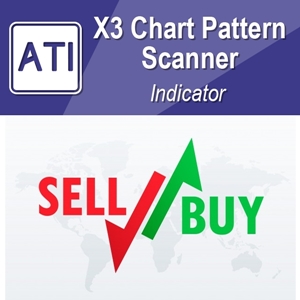Below is the Text Summary From the Full PDF Article:
Your First Training Course in Trading and Investment
Background
I often observe starters and junior traders rushing to live trading when they are not even fully trained to go to live trading. There can be many reasons behind this. One possible reason can be due to the fact that they have lack of understanding on trading and investment itself. Another reason can be that they are psychologically too optimistic without realizing that there are so many variables and uncertainty in trading and investment. Then why do we trade and invest with all these variables and uncertainties? We do trade and invest because it is a lot easier to make quick profits comparing to setting up other business by yourself. For example, if you want to set up a restaurant, you will start with loads of paper works first. But that is just a fraction of what you have to do. You have to concern about where to open your restaurants, how many people to employ, what menu you want to provide, etc. In addition, you have to worry about paying your monthly rent to your building owner and other bills, labour cost, etc. After all these headaches, your ROI (return on investment) from your restaurants can be barely just 20% annually on average. Trading and investment does not require any physical site to operate. You will only need a good computer and good internet connection. But your ROI is often much higher than running a restaurant. So here is a clear reason why a lot of people much prefer to become a trader rather than running a restaurant or other business. However, instead of all these advantages, traders and investors should not trade on live without sufficient trading skills because you are also taking risk of losing your money. This is not to say that you can’t lose money from running a restaurant or other business. Last year one of my close friends finally closed his restaurant after 7 month struggle. He lost about 60,000 US dollar during these 7 months. The main reason for his loss was that there was too much competition around the area and he could not overcome the cost such as labour cost and monthly rents. Anyway anything you do without good preparation, there is a good chance that you will be exposed in negative outcome than positive outcome. So here let’s focus on become a good trader.
Trading and Investment requires multi disciplinary operation and this is not easy to learn for people who do not have access to some organized learning and educational resources. Of course, there is an established route for graduates through Investment Bank or Fund Management Company when they want to follow professional career path as traders and investors. Normally full or partial training will be given to the some smart candidates from the firms for several months. However, such an opportunity may be not available to everyone. We wish this article can serve starters and junior traders as some good guide line to start their trading and investment. In this article, we will spend sometimes to explain the fundamentals of support and resistance which are, in my opinion, the most important lesson for starters and junior traders.
Introducing Support and Resistance
By barrowing some technical definition from StockChart.com, the support can be described like this: “Support is the price level at which demand is thought to be strong enough to prevent the price from declining further.” Likewise, the resistance can be described like this: “Resistance is the price level at which selling is thought to be strong enough to prevent the price from rising further.” This is pretty good description about support and resistance relating the supply and demand concept to price level. However this is also somewhat generalized concept about support and resistance too. In practice, traders will not expect to see the price bouncing back from supply or resistance always. Support and resistance will be penetrated at some point as the price can’t stay in between support and resistance for infinite amount time. When the price penetrates, previous supply can become new resistance and previous resistance can become new supply. Also it is important to note that penetration of support and resistance will happen as many times as bouncing back at support and resistance.
You may ask back “what is the significance of this support and resistance if we can only say the price might penetrate or bounce back at these levels?” Yes, it does matter a lot because when the price penetrate or bounce back from these levels, there are usually large trading volumes making your trading much easier. So up to this point, we might be able to reformulate our support and resistance definition from previous one barrowed from StockChart.com. The reformulated definition can be “Support and resistance are the price level where the price is either penetrating hard or bouncing back hard with unusually high volatility.” Indeed this is more operational definition of support and resistance which you should remember for your trading.
Figure 1: Support Example.
Figure 2: Resistance Example.
Different Types of Support and Resistance
Now we have learnt that the price will either penetrate hard or bounce back hard at our support and resistance level with unusually high volatility. Now the question is how we identify these support and resistance from our chart. Of course, your trading performance will really depending on how accurately you can identify important support and resistance. There are large of number of established techniques by traders over several decades. However, some are easier to use and some are more difficult to use. The accuracy also varies a lot from techniques to techniques.
1. Daily Pivot Point
One of the simple ways to identify support and resistance is to use daily Pivot point. Pivot point can be calculated simply using previous high, low and close price. Experienced traders normally take daily pivot levels very seriously. For example, today I saw on GBPUSD price was below Resistance 1 of the pivot point. After couple of hours later, the GBPUSD penetrate beautifully Resistance 1 of the daily pivot point. Also the GBPUSD stopped at Resistance 2 of the daily pivot and it pretty looked like someone programmed. So this phenomenon exactly matches our operational definition of support and resistance either penetrating hard or bouncing back hard with unusual high volatility.
Figure 3: GBPUSD price action around Daily Pivot R1 and R2 lines.
2. Support and Resistance Detection from historical price patterns
Support and Resistance can be detected by examining some important price level from historical price series. For example, we can count how many times a specific price level was visited in the past. If the price was stopped frequently at this point, we can think that this price levels are probably very important. Indeed, we use such a principle to detect support and resistance for our Precision Support Resistance. We have found that this method works very well to identify significant support and resistance level. One drawback of this technique is that, if the price moves to where it never visited before (i.e. it went up too high or it went down too low), then no support and resistance can be identified. This can occasionally happen if the market decided to make new high or new low. If such event happens, then in our precision support resistance tool, it will show daily pivot automatically together with detected support and resistance levels.
Figure 4: Support and Resistance lines defined from historical price patterns. This methods work pretty well for most of market yet.
3. Support and Resistance using Fibonacci Retracement
Fibonacci Retracement is a favourite tool for many traders. Indeed many traders base their entire trading strategy on Fibonacci Retracement. You could use this technique to identify support and resistance too. To do this, you may need to identify two peaks including highest point and lowest point in your chart. Then you can draw retracement level in Fibonacci number including 23.6%, 38.2%, 50%, 61.8% and 100% etc. One drawback of this technique is that the choice for two peaks can be quite subjective and I am sure that many traders will draw quite different support and resistance levels using this method as they will pick up different peaks. The similar but much more powerful support and resistance detection is also possible using XABCD points of Harmonic Patterns. We will explain this in depth in next section.
Figure 5: Fibonacci retracement from two chosen peaks.
4. Support and Resistance using Potential Reversal Zone in Harmonic Pattern
Using Fibonacci Retracement is relatively simple. On the other hands, Potential Reversal Zone concept in Harmonic Pattern can be used to combine support and resistance levels of many Fibonacci retracements in your charts. This is much more reinforced version of simple Fibonacci Retracement because Potential Reversal Zone is constructed using up to 4 Fibonacci Retracement from 5 points constructing the harmonic pattern. This PRZ technique can overcome the subjective nature of simple Fibonacci Retracement techniques too.
To best understand the concept of PRZ, you can think that you are drawing Fibonacci retracement from each XABCD points of the harmonic pattern. For example, you will draw each Fibonacci retracement for XA, AB, BC and CD legs. Combining these 4 Fibonacci retracements might end up really complex multitudes of lines crossing your chart. This might be not too much readable for your trading in first place. However, experienced traders tend to identify several important PRZ lines by detecting 3 or 4 Fibonacci Retracement lines overlapping together. Identifying these crucial PRZ lines can be really useful for your trading for several reasons. For example, you will be much more justified to use these overlapping PRZ lines over simple Fibonacci Retracement drawn from two peaks only. One thing you should note is that do not expect that price will be reverse only around these PRZ lines because it is called Potential Reversal Zone. It is better to treat this PRZ lines with our operational definition of support and resistance too. So the price will either penetrate hard or bounce hard around these PRZ lines.
In terms of harmonic Pattern trading, if the PRZ lines are near the D point of harmonic pattern, this PRZ line can be your order entry for Harmonic Pattern. These PRZ lines can be known before you wait for first confirmation candle formation. Therefore, you can enter the trading much earlier than people using confirmation candle. These PRZ lines can be located below point D of bullish pattern. These PRZ line can be used as your stop loss for your harmonic pattern trading too. Likewise, you can use take profit and trail stop around these PRZ lines.
One disadvantage of using these PRZ lines is that it is really tedious task for drawing 4 Fibonacci Retracements manually. I have seen some traders doing this painful task manually but the problem is that their drawing becomes quite subjective and inaccurate as they start to feel tired with their drawing. In addition identifying 3 or 4 overlapping Fibonacci Retracements are another subjective task for human eyes. If you want to save a lot of time and efforts from drawing these PRZ lines manually, then you can use our Harmonic Pattern Plus or Harmonic Pattern Scenario Planner to draw these PRZ lines automatically for you. They will do these repeating and tiring task less than 1 second for you. You will get only reported important PRZ lines on your chart. You can even lock these PRZ lines for you to use as a reliable support and resistance lines.
Figure 6: Fibonacci Retracement from XA and BC upwards legs.
Figure 7: Fibonacci Retracement from AB and CD downward legs.
Figure 8: Combined Fibonacci Retracement from all XA, AB, BC and CD legs. These combined Fibonacci Retracements are really complex and not so much readable. It is important to identify overlapping PRZ among these complex lines for your practical trading.
Figure 9: All fuzzy PRZ lines are automatically filtered out. Only clustered and overlapping PRZ lines are shown from Harmonic Pattern Plus. As you can see, it is much easier to spot the entry with harmonic patterns.
5. Support and Resistance by technical indicators
Sometimes you can use technical indicators to identify important support and resistance levels. Moving average is probably the most common technical indicator used for this task.
Figure 10: Support and Resistance line drawn using simple moving average.
6. Round number or psychological number
Sometimes round number can be used as a very good support and resistance. This is in fact the one of the simplest support and resistance identification method, even more than the daily pivot method. For the case of EURUSD, round number is the price level like 1.2000 or 1.3000. For the case of stock market, round number can be the price level like 50$ or 100$. It is quite interesting to see how price react when they reach these round numbers. Again, these round numbers are quite important to watch out too for your trading.
7. Diagonal Support and Resistance
So far, we have only explained horizontal support and resistance lines. Indeed previous 6 techniques are based on horizontal support and resistance. However, human eyes can detect diagonal support and resistance lines too. For example, outline of many triangle patterns appearing in your chart can be served as your diagonal support and resistance. The exactly same principle can be applied to these horizontal support and resistance. The price can either penetrate hard or bounce hard at these diagonal support and resistance with unusually high volatility. You can draw diagonal support and resistance level by connecting some important peaks on your chart. Decreasing volatility of triangle patterns are typical pre-sign of explosive volatility in the near future. Therefore you must be quite attentive when these diagonal support and resistance lines are detected on your charts.
Figure 11: Typical example of diagonal support and resistance lines appearing in financial market. In this case, diagonal support and resistance line makes symmetric triangle patterns.
Figure 12: Typical diagonal support and resistance example appearing in financial market. In this example, these diagonal support and resistance lines make up rising wedge pattern.
Value of these diagonal support and resistance lines are quite high because these diagonal support and resistance lines can be combined with any of horizontal support and resistance lines for better prediction of price action. For example, overlapping PRZ lines can be formed quite sensible area of rising wedge patterns giving you very good clue about where the price might be breakout. In addition some horizontal support and resistance lines can be nested inside big rising wedge patterns giving your some idea about where to place your pending order. It is also common to see a small harmonic pattern nested inside big rising wedge or falling wedge. These nested harmonic patterns can offer you highly accurate trading entry by confirming both diagonal support and horizontal support lines at the same time. Once again analyzing both diagonal and horizontal support and resistance are very powerful tools for your trading but doing this manually is very tedious task. We provide fully automatic solution for your advanced trading.
Figure 13: Typical reinforced support between horizontal and diagonal support lines. If this reinforced support lines are breakdown, then there can be really good sell rally helping you make good pips reflecting directional prediction made by harmonic patterns and rising wedge.
Figure 14: Typical combination of diagonal support and resistance lines (created by Price Breakout Pattern Scanner) with horizontal Support and resistance lines (created by Precision Support Resistance Tool).
Figure 15: Small Nested Harmonic Patterns with PRZ entry confirmation. Naturally confirming your entry with both diagonal support and horizontal support give you highly accurate trading setup. High volatility around PRZ lines helps you to achieve the profits so easily too.
Further note about Support and Resistance
Support and resistance are relatively easy to understand but their effectiveness was proved for many decades already among traders and investors. For your trading career, you will find that you can’t ignore these support and resistance on your chart. However, it should be noted that trading with support and resistance are one of many trading techniques. Most of time, trading with support and resistance are considered as the basic or introductory classes among other topics during some structured training course. Even though, we have shown you here that combing several different support and resistance techniques can offer you highly sophisticated trading opportunity. Support and Resistance are still the most effective techniques used by many traders and we strongly encourage mastering these techniques for you. So we have spent some time here to give your first training course with support and resistance. We hope this was quite useful.




